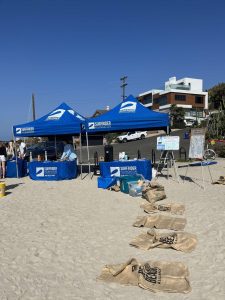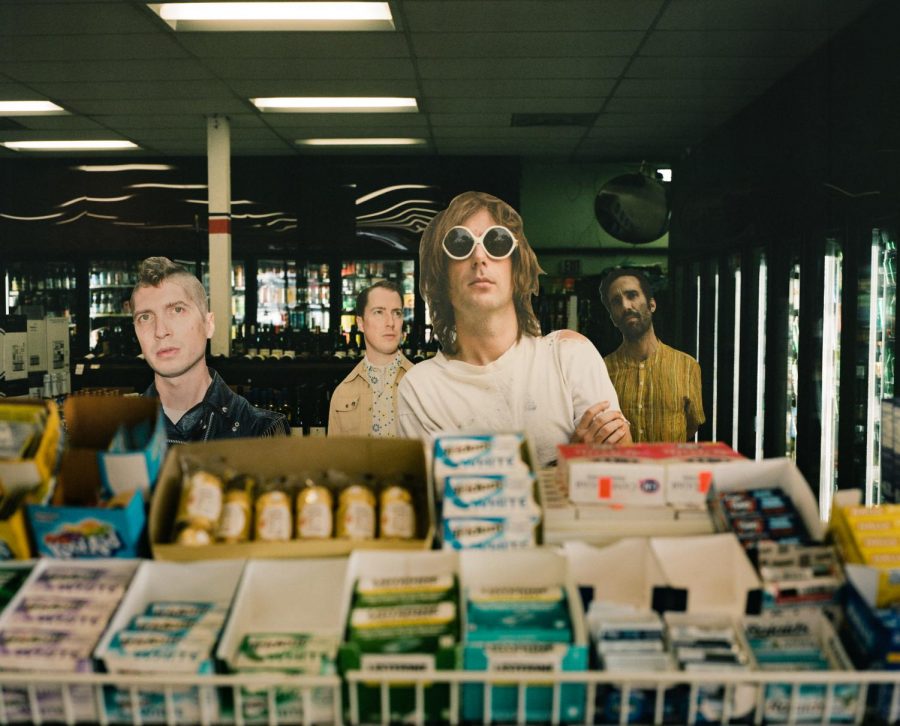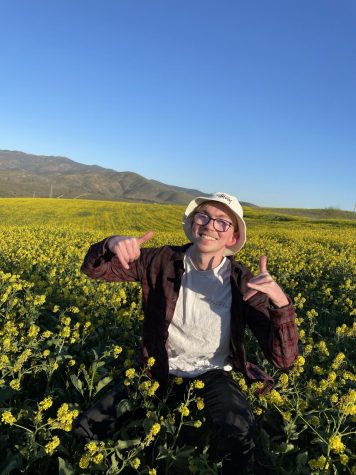The last thing you would expect from an artist with such a versatile, ever-burning passion for music is for their flame to die out … temporarily, at least.
As frontman for bands like The Unicorns, Human Highway, Reefer and most notably for Islands (as well as a solo venture as Nick Diamonds), Nick Thorburn’s musical prowess has had an almost unimaginable reach. Over the last two decades he’s put together a resume that could match up with any of the greats and his artistic passions have expanded far beyond traditional music releases.
His ongoing story can’t be told without the numerous film and podcast scores he’s created, nor the short film he directed starring Michael Cera and Tim Heidecker. There’s also his amusing 2018 graphic novel “Penguins” which tells of the comically interesting lives of its namesake animal. Thorburn’s overwhelming amount of interests distinguish him as a one-of-a-kind artist.
But after releasing two albums on the same day in 2016 and a few swift farewell shows, Islands was all but done. Thorburn’s output with the group had seemingly reached its limit. There were no more ideas and no other interests to feed off of. However, the pot wasn’t completely empty yet.
Thorburn credits an inspirational session with a young musician as the boost necessary for Islands’ comeback. He said being around a hopeful artist with a mindset defined by joy and exuberance and rather than fear of success or monetary goals reminded him of his truly honest and sincere relationship with music. Putting things back into perspective meant returning to the studio to rekindle the fire, and that’s how “Islomania” was born.
Released May 7, Islands’ eighth album “Islomania” is groovy, fun and tranquil but oftentimes much darker than what meets the ear. Partially inspired by the COVID-19 pandemic as well as the common themes of despondent relationships and echoing loneliness. Thorburn channels Daft Punk, disco and synth-pop to create one of the year’s most memorable projects. Better yet, Thorburn sounds rejuvenated, almost reborn in his musical ambitions.
As Thorburn prepares for Islands’ “Islomania” tour to begin Sept. 7 at The Casbah in downtown San Diego, a lot has changed since the band’s last run of shows in 2016. San Diego itself doesn’t serve much locational significance for the show outside of being in close proximity to Thorburn’s home base of Los Angeles. But the city does signify not only the first Islands show in five years but a return to live, in-person performances for a number of musicians. This leaves only one question: how does he feel about all of it?
Just to start off, obviously, the big question is after 5 years what is it that brought Islands back?
You know it’s like that opening of the Sopranos “Just when I thought I was out … they pull me back in.” I was turning down these different hallways and different creative pursuits and music kept popping up again. I think they’re all sort of interrelated too. I think my drawing stuff and the other writing stuff I like to do, they all feed into each other. In the five years off I was trying to explore those sides a little more earnestly and you know really wanted to put music to bed until I had something interesting or relevant to say or something that inspired me or motivated me. I think it just took five years and it just happened to be a sabbatical. I wasn’t sure, I just knew that I was outta gas, I didn’t have much left to say and then it started to seep back into my life.
Was it a feeling where you’re like “I’m fully back” or did you have to ease into it a little bit?
I wasn’t sure what my next trick would be and I just didn’t have any song ideas. But when we came back, in the first couple of months I’d written 50 songs for what would become “Islomania” so I was kind of hitting the ground running and it was pretty easy to slide back into it, it felt like riding a bike you know. It was not an uphill climb once the rush of creativity and inspiration came back and it was off to the races.
A lot of musicians took the time especially when covid first hit last march to hone in on their craft and produce and create something new, did the pandemic have any impact at all on how you were creating your music or even the subject matter within your music?
I was definitely still writing throughout the pandemic we had done the majority of the album except for one song “Set the Fairlight” that was written and recorded during that summer of 2020 and I kept writing, I’m writing always and seeing where songs sit for future projects or if they’re just sort of an exercise. But yeah I think obviously it affected me. It was a total perspective shift, I think everybody got the wind knocked out of them so it definitely seeps into it. You can interpret “Set The Fairlight” as a reaction to the isolation that I was going through and everyone was going through. It’s in there and it’s in the future songs too, some more explicitly, it’s impossible not to have some reaction to that I suppose.
As groovy and fun as the whole album sounds production-wise, some of the lyrics are much more melancholy. I was thinking of “Closed Captioning” and how it sort of feels like a relationship that’s not functioning correctly you know someone is on a different page than another person so for that song did that (pandemic) mindset seep in?
That one was made before the pandemic but that is something that I always like to do as a writer is to sort of contrast these two emotions, having the music feel really bouncy and fun and then having the lyrics be in sharp contrast really bleak and hopeless sounding and if anything it’s just kind of a funny gag to lure you in with the music and then when you listen to the music you’re like oh this is actually quite dark I think that’s a trick I like to play.
You have a very welcoming sound and so it sounds fun, but once people hear the lyrics they’re like “this is much different than I anticipated.”
Yeah you know I’m trying to express something as darkly as I can but dressing it up like a trojan horse so it gets in the door.
You’ve been involved in so many projects over the years, you directed a short film, you scored “Ingrid Goes West” and “Serial,” you created a graphic novel, how have these experiences helped you become a more well-rounded artist?
I think they all feed into each other, they’re all the same conduit, they all serve the same purpose I think and so they play into each other which is good I guess. I feel lucky that I’m able to pivot when I feel burnt out in one area and I can just rotate and try to express myself another way and when I circle back they all bleed into each other. I’m still making stuff, I can’t look back at it too much because I’m still alive. Maybe when I’m dead the book will be closed and it’ll all make some sense but I’m still going at this point so I don’t really know.
I mean “Serial” is one of the most known podcasts ever so that’s a cool thing to have on your resume, you know?
I got a free ride and a fast car you know, that was gonna be a hit whether I was on it or not. I think the song might’ve helped move it along but that was already going in that direction so I just caught a ride and I’m thankful for that.
Does it feel surreal at all, the idea of performing in front of a crowd again after the turmoil of the past year and a half, combined with not making music with Islands for five years?
Taking five years from Islands and coming back to it in itself is already wild. Coming back to it but coupled with the real trauma of the past year and a half it’s gonna be strange, hopefully, it’ll be beautiful, and it’s gonna be transcendent if we’re lucky, at the least just special. I think we thought we were fully out of the woods in June, and we were gonna be able to be mask free and cut a rug so now there’s gonna be masks and vaccination status so it’ll be a little more button-down, so hopefully people can transcend that and get into the music, I know that I’m very excited to be out there and on-stage singing, that’s a special privilege that I have and I’m excited to be able to do.
You said earlier you recorded fifty songs for “Islomania” What can fans expect for Islands’ next project?
It’s sort of the counterpoint. So “Islomania” is the Friday night feeling alright even though lyrically there’s some downtrodden stuff, but musically it’s this very uplifting, anticipatory feeling of good times ahead. So the next record is the counterpoint to that: that’s the Monday morning hangover comedown, sideways, dissociative record. It’s like the ketamine record to the cocaine of “Islomania.” So this is really the thing that pulls you down into the earth but takes you sideways. In the years off that I wasn’t doing music, I was trying to make beats like rap beats and just experimenting with it. Sampling stuff, chopping stuff up. So this new record is largely informed by that, there’s this sort of tempo, BPM, that’s the head-nod tempo of some of the records that I was listening to. The rap records, the 90s rap records.
This interview has been edited for length and clarity.












